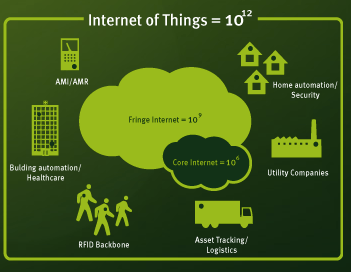As more reports of ARM-based Windows and Apple devices continue to fill the airwaves — the latest being reports of a Surface 2 and Nokia’s first Windows tablet, along with upcoming iPhone handsets — the Cambridge, UK-based semiconductor technology powerhouse is pressing ahead with its bigger ambition be at the heart of all connected devices: today the company announced that it is acquiring Sensinode Oy, a Finland-based startup that develops internet-of-things software.
This is a bolt-on purchase: ARM says that for now it will continue to sell Sensinode’s NanoStack and NanoService products to existing and new customers, alongside its ARM Cortex® family of processors and collaborative mbed project.
Financial terms of the deal were not disclosed.
ARM’s move to develop for more than smartphones and tablets — the two areas where you are most likely to hear its name these days, specifically in connection with companies like Apple, which designs its own ARM-based chips for its devices — is not a new one.
When its longtime CEO Warren East stepped down last year to be replaced by insider and former engineer Simon Segars, ARM emphasized how it was taking a long-term view of how the company would grow. The implication at the time was that it would be beyond the devices we typically refer to as “mobile” today, to cover cars, ovens and other appliances, factory robots, and really anything that you might need or want to be connected up in your work or leisure life — as the illustration here, taken from Sensinode’s site, shows.
The list indeed is long: “IoT technology can be used in wireless sensors, smart connected appliances, home health applications, and wearable electronics. The technology is also applicable to M2M applications using cellular connections and the new OMA Lightweight M2M standard for device management,” ARM notes.
“We take a very long-term view about our business, and we believe that now is the right time to bring in new leadership, to execute on the next phase of growth and to plan even further into the future,” East said at the time of his resignation.
In that regard, today’s acquisition news is evidence of how this is playing out. ARM projects (via analysts IMS Research) that there will be 30 billion connected devices by 2020. Compare that to the 8.7 billion ARM-based devices that were shipped last year, and combine that with ARM’s existing repution, and you can see why ARM sees this as a clear opportunity for the taking.
“ARM is dedicated to enabling a standards-based Internet of Things where billions of devices of all types and capabilities are connected through interoperable Internet Protocols and Web Services,” said John Cornish, executive vice president and general manager, System Design Division, ARM, in a statement.
You can also see how it’s important for ARM to continue pushing in this development against competitors like Intel, which is also hungrily eyeing up the IoT space.
ARM describes Sensinode as one of the “pioneers in software for low cost low power internet connected devices and a key contributor to open standards for IoT.” Those standards include creating the 6LoWPAN and CoAP standards for low cost low power devices; and contributing to IETF, ZigBee IP, ETSI and OMA standardization efforts.
This is a win for Sensinode because it gives the startup a much bigger platform and audience of developers who might build chips and devices on its technology. “By making Sensinode expertise and technology accessible to the ARM Partnership and through the ARM mbed project we will enable rapid deployment of thousands of new and innovative IoT applications,” notes Cornish.
This looks like it’s only ARM’s second acquisition ever. The first was just as strategic: it was in 2011 of Prolific, which developed nanotechnology software tools.
